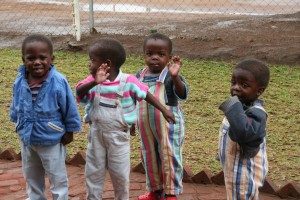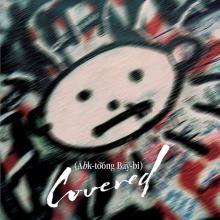horn of africa
THE IMAGE THAT first brought Ugandan climate activist Vanessa Nakate to many people’s attention is one that doesn’t even include her.
In January 2020, Nakate was invited to join five other young activists in a climate demonstration during the World Economic Forum annual meeting in Davos, Switzerland. An Associated Press photographer snapped a photo of Nakate standing with European climate activists Luisa Neubauer, Greta Thunberg, Isabelle Axelsson, and Loukina Tille. But when the AP published the photo that afternoon, Nakate wasn’t in it.
“Even now, well over a year after being cropped out of that photograph, it’s hard for me to talk about what happened,” wrote Nakate in her 2021 book A Bigger Picture: My Fight to Bring a New African Voice to the Climate Crisis. “By cutting me out of the photo they’d originally sent to global media organizations, the AP had denied an African activist a chance to be seen and, possibly, her message to be acknowledged.”
While the AP did some “soul-searching” following the incident, Nakate used the moment to ignite an overdue conversation about the whiteness that has long plagued the global environmental justice movement. “Being cropped out of the photo changed me,” she wrote. “I decided, from my perspective as a young African woman, that I would dedicate as much of my time as possible to addressing the many interlocking facets of the climate crisis, environmental justice, and gender discrimination — and to do so without apology or fear of erasure.”
Nakate founded the Rise Up Movement to amplify the voices of climate activists from Africa and launched a fundraising campaign for the Vash Green Schools Project to bring solar panels and cookstoves to schools across Uganda. At 25, she’s busy. And faced with a global climate emergency, it makes sense. “I don’t often get asked what recharges me,” Nakate told me when we spoke in early August. “But for me, it’s my relationship with the Holy Spirit.”
Raised in an Anglican family, Nakate became a born-again Christian as a teenager. “Activism can be very hard and prayer and attending services (or, in Covid times, watching online) have been extremely important sources of love, grace, and support,” she wrote in the acknowledgments of A Bigger Picture.
“If I feel distraught or disturbed by anything, I know the Holy Spirit will remind me of the peace that surpasses all human understanding,” she later told me. I spoke with Nakate via Zoom about her Christian faith, the role social media plays in her activism, and why we can’t eradicate poverty without addressing the climate crisis. — Christina Colón
The band may be taking a well-deserved break from touring and recording, but U2 fans still have a new album to relish just in time for Thanksgiving.
Ǎhk-Toong Bāy-Bi Covered features cover versions of U2's famed 1991 album Achtung Baby featuring renditions by Snow Patrol, The Fray, Patti Smith, Damien Rice, Depeche Mode, Jack White, The Killers and others.
And all proceeds from the album's sales will go to help some of the estimated 13.3 million Africans suffering through the worst drought and famine in 60 years.

Less than one percent of the federal budget goes to foreign aid. Our spending on development and foreign assistance is not -- by any stretch of the facts or imagination -- our national debt.
Cutting foreign aid programs will do little to get us out of debt, but would be a devastating setback in the fight against global, extreme poverty.
Adam Phillips is a Evangelical Covenant Church minister and director of faith mobilization for the ONE Campaign, www.one.org.
This video is the latest installment in an ongoing series at God's Politics where we've asked leading clergy, writers, scholars, artists, activists and others who self-identify as "evangelical" to answer the question, "What is an Evangelical?"
What's more obscene? Thirty-thousand children dead in Somalia in three months? Or the world standing by and letting it happen?
When I first visited Ethiopia at the height of the 1984 famine, I watched as twenty-four people died of starvation in less than fifteen minutes, right in front of my eyes. Barely five years into my career as a Congressman, nothing my staff told me beforehand could have prepared me for what I saw on that trip.
Gasping at awful photographs of unspeakable human suffering is one thing; bearing firsthand witness to human suffering is another thing entirely. Glancing at a picture of a starving child in the newspaper, you can always turn away, but when you're staring into the eyes of a mother who has just lost that child, it's a completely different story. There's no looking the other way.
That's why I often describe those first Ethiopia experiences as my "converting ground" on issues of global hunger. What happened in Ethiopia changed me, and changed how an entire generation looks at hunger.
It's also why I'm currently back on the Horn of Africa, reporting on the ground from the Dadaab refugee camp in eastern Kenya, less than fifty miles from the Somali border. And I am appealing to my affluent brothers and sisters in the United Stated and around the world not to look away. We need your help.

